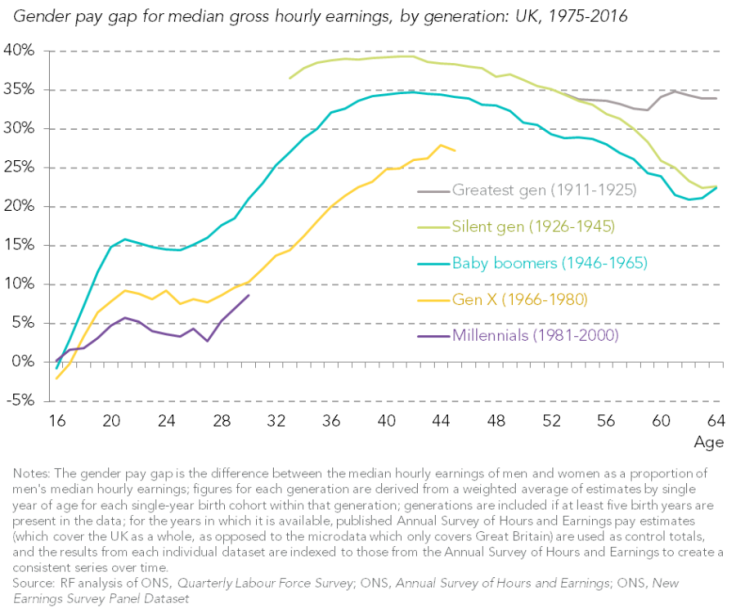Are Men Better Than Women? Of Course Not, But Pay Discrimination Based On Gender Persists Amid Progress

There may be some good news on the gender equity front: Younger millennial women have closed the wage gap with men in their age group to a less than 5 percent disparity. That’s a drop from just under 10 percent for generation X and from around 15 percent for baby boomers.
But, there’s also some bad news: As millennials get older, the gap widens once again, a study published Wednesday on wages in the United Kingdom by the Resolution Foundation indicated.
Still, the analysis of pay gaps among generations indicated the disparity is closing with each successive generation. For instance, the so-called silent generation paid women nearly 40 percent less than their male counterparts midcareer while generation X cut that down to about 27 percent (the midcareer boomer generation, which fell between those two, saw a 35 percent disparity). The pay gap for millennial women entering their 30s, however, creeps toward the generation X gap, a sign the trend may have stalled.

The progress over time can be traced to a number of trends in the U.K., including equality legislation, maternity rights, welfare support and rising education participation by women.
The United Kingdom, on average, has a gender wage gap comparable to many other industrialized, western nations, including the United States, Australia and Austria, according to data from the Organization for Economic Cooperation and Development. The U.K. has an overall 17.48 percent gap compared to 17.91 percent for the United States, 18 percent for Australia and 18.19 percent for Austria.
The overall pay gap, which is what was measured above, tends to mask some other important parts of the conversation. For instance, the gap is much worse for minority women: Black and Hispanic women make 63 cents and 54 cents, respectively, for every dollar that white men make in the United States. The mix of all women and men tends to obscure the fact that women and men tend to work different jobs and have historically made different choices regarding work-life balance and other positive personal growth decisions.
© Copyright IBTimes 2024. All rights reserved.






















